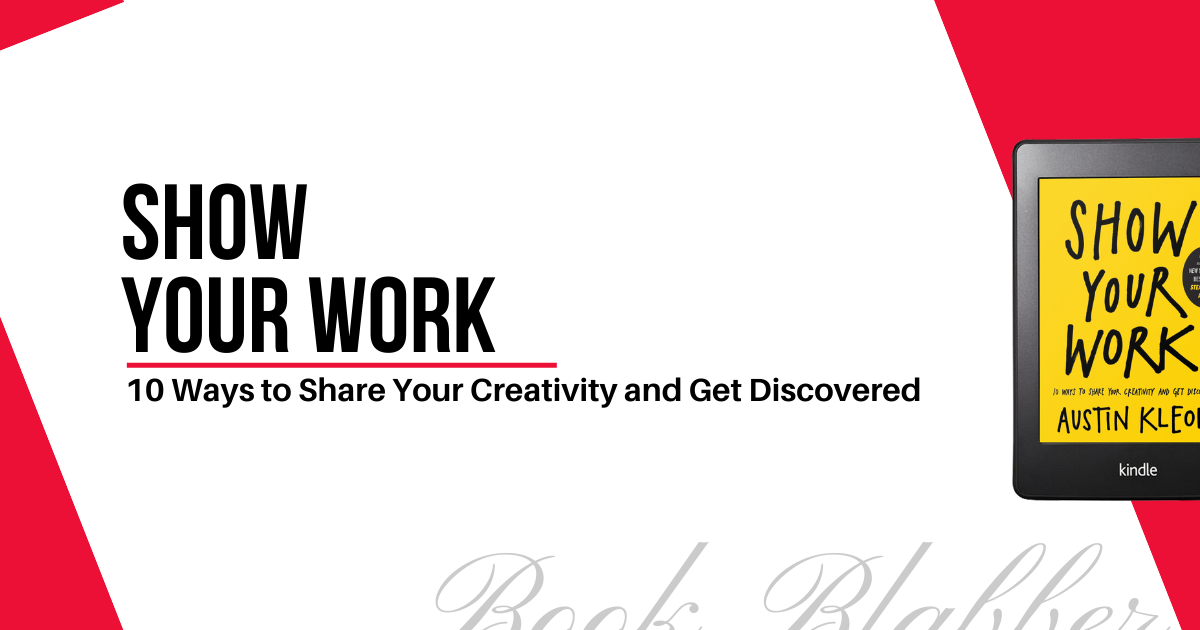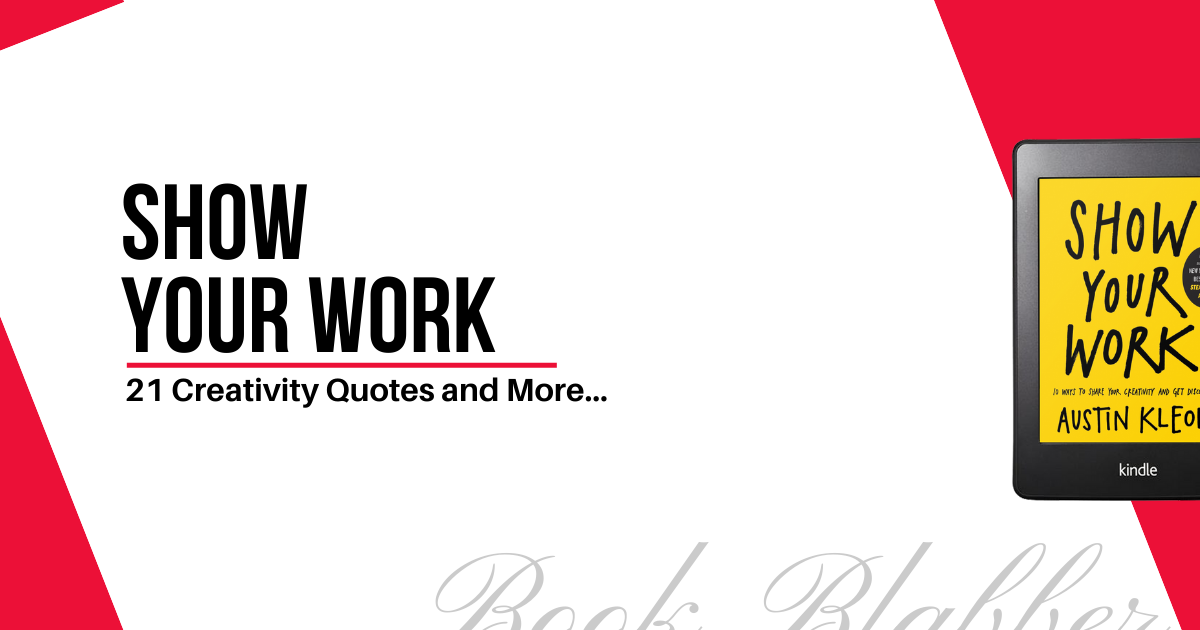10 Ways to Share Your Creativity and Get Discovered

This January (in 2021), I read (tbh binge-read) the three books of Austin Kleon I heard about. These were Steal Like an Artist, Show Your Work and Keep Going. The books tell you how you can be creative, grow as a creative professional and keep producing creative building blocks.
These three books by Austin have several tips about figuring out what’s the best for you, finding your tribe, improving your skills and many more.
This article contains the lessons from the second book – Show Your Work. Show Your Work book summary is about ten transformative rules for being open, generous, brave, productive.
Check Show Your Work on Goodreads
Check the other articles in this three-part Austin Kleon books summary:
- Steal Like an Artist: 10 Things Nobody Told You About Being Creative
- Keep Going: 10 Ways to Stay Creative in Good Times and Bad
Let’s dive in.
Table of Contents
You don’t have to be a genius
One of the mantras I live by – Learn, apply, share the knowledge.

So, the trick is to be an amateur; amateurs have little to lose.
Be willing to try anything and share the results. Take chances, experiment, and follow your whims. Be on the lookout for voids that you can fill with your own efforts, no matter how bad they’re at first.
Austin suggested taking inspiration from the people who muddled through life before you. Because artists are people who support each other, look at each other’s work, copy from each other and steal ideas. Oh, they also contribute ideas.
If you would like to read quotes about sharing work:
21 Show Your Work Quotes and More...
Think process, not product
Austin said whatever the nature of your work, it has an art. And people are interested in that art.
By sharing your process, you have the possibility for people to have an ongoing connection with you and your work. I have tried, and it works fo sho.
Share something small every day
Well, focus on days, one day at a time. Once a day, after you’re done with it, find one little piece of your process to share. Showing your work is essential. It builds credibility.
Go through your documentation, check what you did, and share one piece. Oh, don’t show your lunch or your latte; show your work.
But don’t share absolutely everything. Ask “So what?” every time you turn in a piece of writing. Be open, share imperfect and unfinished work that you want feedback on.
Detect patterns, start gathering these bits and pieces, and turn them into something bigger and more substantial.
Better own a space online; go register a domain name. Your website doesn’t have to look pretty; it just has to exist.

Check this: You Have More Time than You Think
Open up your cabinet of curiosities
When you find things you genuinely enjoy, don’t let anyone else make you feel bad about it. Don’t feel guilty about the pleasure you take in the things you enjoy. Celebrate them.
Being open and honest about what you like is the best way to connect with people who, too, like these things.
Also, share other’s work, treating it with respect and care. Your influences are all worth sharing because they clue people in to who you’re and what you do.
Tell good stories
Well, what you tell about an object, deeply affects people’s assessment of it. Human beings want to know where things came from, how they were made and who made them.

Similarly, you can tell stories about yourself and your work.
A simple formula to apply: There’s the initial problem, the work done to solve the problem, and the solution. Don’t brag; just state the facts, when you’re introducing yourself.
Teach what you know
You should definitely start sharing what you know. By teaching, you are, by no means attracting competition. You’re just taking people step-by-step through part of your process.
And people feel closer to your work because you’re letting them in on what you know.
Don’t turn into human spam
While it’s good to show your work and talk about it, the experience of art is always a two-way street.
If you want fans, you have to be a fan first. So, be a part of a community, and be a good citizen. You have to be a connector.
Shut up and listen once in a while. If you want to be interesting, you have to be interested.
Also, if after hanging out with someone you feel worn out and dilapidated, banish them from your life. Instead, hang out with someone with whom you still feel full of energy.

As you put yourself and your work out there, you will run into your real peers.
These are the people who share your obsessions. The people who share a similar mission to your own, the people with whom you share a mutual respect.
Who you know is largely dependent on who you are and what you do.

Learn to take a punch
Austin said that when you put your work out in the world, be ready for the good, the bad and the ugly. If you aren’t, you won’t be able to show your work out in the open.
Don’t care what everyone thinks of you. You want feedback from only those people who care about you and what you do.

Sell out
Austin suggested not to be jealous when the people you like do well. Instead, celebrate their victory as if it’s your own. It will help you grow your community, and gather more audience.
Also keep collecting email addresses from people who come across your work and want to stay in touch.
And when an audience starts gathering for the work you’re freely putting into the world; you might eventually want to take the leap of turning them into patrons.
Don’t be afraid to charge for your work, but put a price on it that you think is fair. A life of creativity is all about change: moving forward, taking chances, exploring new frontiers.
Be as generous as you can, but selfish enough to get your work done.
Also read: Lessons from a Survived Freelancer
Stick around
A successful or failed project is no guarantee of another success or failure.
Those who get what they’re after are very often the ones who just stick around long enough. You avoid stalling out in your career by never losing momentum.

And when you feel like you’ve learned whatever there is to learn from what you’re doing, change course and find something new to learn.
When you find something new to learn, dedicate yourself to learning it out in the open. Document your progress and share as you go so that others can learn along with you.
OK, that was all from the book.
Liked it?
Join Book Blabbers WhatsApp group to bond over books, memes and quotes.
Subscribe to Book Blabber's Bulletin to get book summaries, reading tips and occasional hugs in your inbox.







Comments